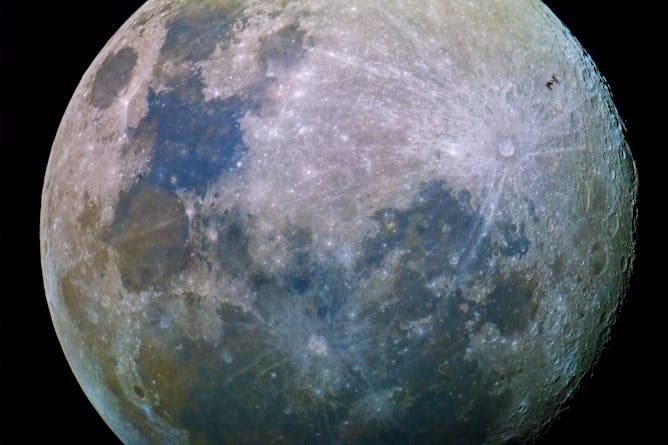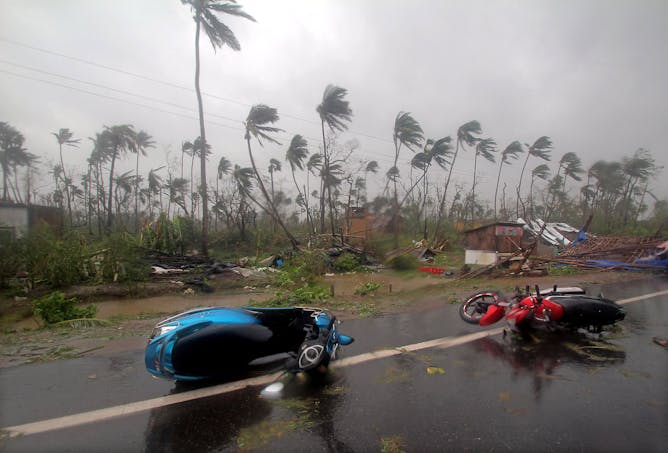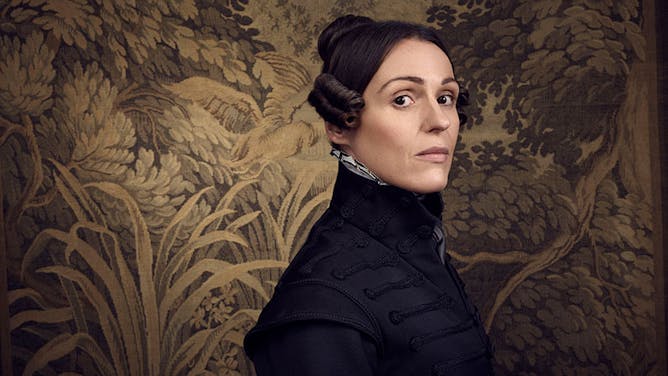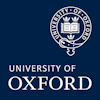|
|
|
Editor's note
|
|
Dear reader,
The Conversation was established as a charity in the UK six years ago. Its purpose? To provide the public with trustworthy and accessible expert analysis and research-based news. It was, and is, fundamentally about democratising knowledge. Today, we’re asking you to support that mission.
Terms such as “alternative facts” and “fake news” have become well known over the past few years. Meanwhile, The Conversation has forged a unique new form of journalism that is grounded in academic expertise.
But what makes it different? Well, for a start, how we produce our content. All of it is sourced from academic experts. They are the cornerstone of our journalism. Those experts are paired with professional editors and together they hone articles and podcasts that exist purely to provide insight and explanation for readers – not to generate profit.
That content, which will always be free to read and free for others to republish through Creative Commons, is having an impact across the world. Thanks to our network of eight editions in four languages, every month our authors’ work is viewed more than 40 million times in a vast range of internationally-renowned publications. They are regularly cited in national parliaments and at global events. Meanwhile, in classrooms, our Curious Kids articles are reaching out to the planet’s children.
Of course, all of this costs money. We remain not-for-profit and a registered charity in the UK. Our member universities, who we work closely with, provide annual fees which allow the core operation to function. But to keep going and, hopefully, to expand what we hope you feel is a valuable project in difficult times, we need increased funding.
So today, on behalf of The Conversation team in the UK, I am asking you to invest in us. Help us keep facts and expertise freely available by making a donation.
And please share this message with a friend, family member or colleague. By forwarding the email and suggesting they sign up for our daily updates you are helping the voice of academic expertise reach an even wider audience.
|
|
|
Top stories
|

The International Space station transits the “Blue moon” in late June 2015.
Dylan O'Donnell
David Rothery, The Open University
New analysis of data from the Apollo era shows that moonquakes occur close to visible faults, which may matter when setting up a moon base.
|

EPA-EFE/STR
Manoj Dora, Brunel University London; Arabinda Kumar Padhee, CGIAR System Organization
Thousands of lives have been saved thanks to an Indian state's effective disaster-relief planning.
|

Suranne Jones as Gentleman Jack.
BBC/Lookout Point/Jay Brooks
Sarah Richardson, University of Warwick
Often referred to as the first modern lesbian, Anne Lister had a lot of political ambition.
|
Cities
|
-
Jonathan Sykes, University of Sheffield
Artificial intelligence can help manage floods effectively, but decisions about which communities are protected require a human touch.
|
|
Health + Medicine
|
-
Michaela James, Swansea University; Sinead Brophy, Swansea University
Want teenagers to be more active? Just talk to them first
-
Liz Forbat, University of Stirling; Wai-Man Liu, Australian National University
The death of a close friend is a much overlooked bereavement.
|
|
Politics + Society
|
-
Nora Siklodi, University of Portsmouth
Interviews with Leave and Remain supporters shows a common desire to preserve community and frustration with the self-interest of some politicians.
-
Gavin Dingwall, De Montfort University; Jessica Gallagher, De Montfort University
Evidence from Scotland reveals the presumption against shorter sentences has shown little reduction in prison numbers.
|
|
Science + Technology
|
-
Bill Bateman, Curtin University
One thing I can tell you is that a snail's bottom is right over its head.
-
Imogen Whittam, University of the Western Cape
The diameter of the Milky Way is a billion billion kilometres.
-
John Pickavance, University of Leeds
Virtual reality can allow teachers and students to explore coral reefs or the inside of cells without leaving the classroom.
|
|
| |
Featured events
|

|
Room W/222, Wentworth College, Campus West, York, York, YO10 5DD, United Kingdom — University of York
|

|
Gustave Tuck Lecture Theatre, Wilkins Building, Gower Street, London, London, City of, WC1E 6BT, United Kingdom — UCL
|

|
Bowland Auditorium, Berrick Saul Building, Campus West, York, York, YO10 5DD, United Kingdom — University of York
|

|
34 Broad Street, Oxford, Oxfordshire, OX1 3BD, United Kingdom — University of Oxford
|
|
|
|
| |
| |
| |
| |
| |
|
|
|
|
|
|
|